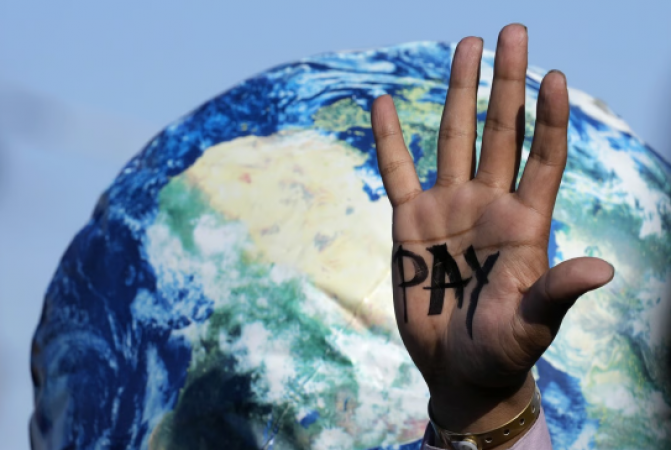
USA: Global governments should issue prize-based "carbon currency" worth trillions of dollars per year to encourage investors and businesses to finance climate change projects, according to a policy advocate.
The proposed currency, which would be issued by a newly established "Carbon Exchange Authority" in each participating jurisdiction, would serve as a "carrot" that would replace existing "sticks" such as carbon taxes and emissions cap-and-trade mechanisms. can co-exist with
According to Dalton Chen, founder and project director of the Global Carbon Reward, a climate policy advocacy organization, this could accelerate climate action to avoid the worst effects of climate change and increase the chances of keeping global warming below two degrees Celsius.
Also Read: Lawmakers present $1.7 trillion bill to avert shutdown and advance Ukraine
He says current policymaking is too slow due to changes in domestic politics and international relations, as seen at last month's COP27 global climate talks.
"I just had an intuition that a currency instrument could deliver climate finance at speed and scale," the Australian hydrogeologist and climate solutions researcher explained in an interview while conducting seminars for government officials, corporate finance leaders in Hong Kong. , and policy researcher.
He intends to release a working paper outlining his proposals early next year. His carbon currency concept was featured in Kim Stanley Robinson's 2020 climate novel The Ministry for the Future.
Chen has proposed an international agreement in which central banks guarantee to buy carbon currency at predetermined "low prices", just as the Hong Kong dollar is linked to the US dollar under the city's currency board system, but with no upper limit. There is no price limit.
Also Read: Wednesday's hearing regarding the extradition of the founder of FTX to the United States
When carbon exchange authorities require central banks to protect a minimum price, they will do so by printing money. According to Chen, this would increase the money supply to stimulate the economy, similar to printing money to buy government bonds during "quantitative easing" in the past decade.
The price floor will increase steadily until the middle of the century, when global net zero emissions targets are expected to meet the 2015 Paris Agreement.
Carbon currency will first be created and distributed to project owners who have reduced their greenhouse gas emissions. Project owners would then sell their carbon currency to investors, who would be able to fund a significant portion of the emissions mitigation and removal work.
When it comes time to pay for equipment and staff, project developers will be able to exchange carbon currency for hard currencies from participating countries at low transaction costs.
Chen predicted that the currency could be worth several trillion dollars per year.
According to the International Energy Agency, to achieve net zero emissions by 2050, annual clean energy investments would need to more than triple to approximately US$4 trillion by 2030.
According to economists, central banks have already taken steps in their monetary policies to encourage climate action, and getting governments to commit to another climate finance regime will be an uphill task.
"Other ways to create rewards already exist, such as the European Central Bank's quantitative easing policies giving preference to green collateral and green corporate bonds," said Alicia Garcia-Herrero, chief economist for Asia-Pacific at French bank Netixis.
Also Read: Musk promises to continue leading Twitter until a replacement is found
"As a regulator, the ECB is also pushing banks to have greener solvency ratios, and there are many other things they can do to appear safer."
China's central bank has also "targeted" easing measures to aid some climate-friendly activities, according to Dong Jinyu, senior China economist at BBVA Research.
“Carbon currency can only be implemented legally if there is no problem during an easy monetary cycle, not during a tight cycle like the one we are currently experiencing,” she said.
"If the central bank is able to easily print money to finance environmentally friendly projects, established monetary discipline may be undermined."